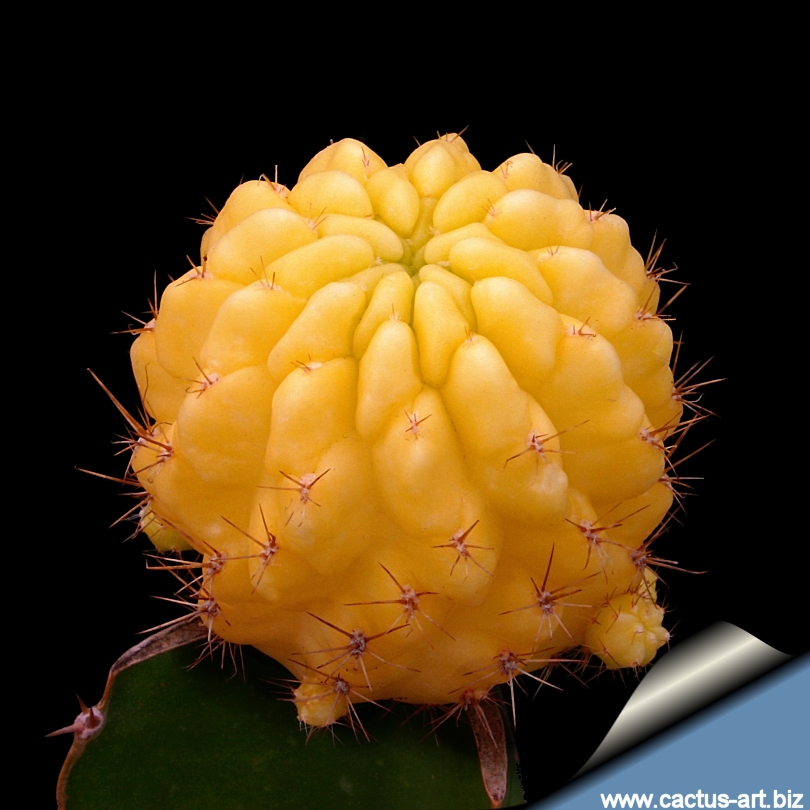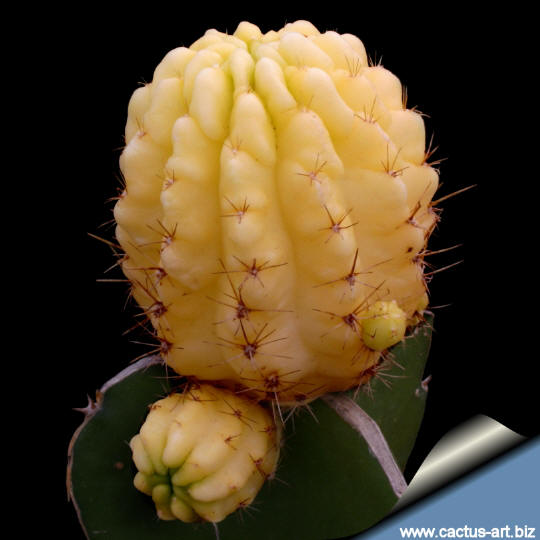|
|
|

Lobivia pentlandii "Yellow form" (albinos) |
|
Albinism |
Albinism is a
genetic aberration where there is a total absence of
pigments. An "albinos" plant therefore is one with no
pigment whatsoever, it will have totally white or cream
stems or
leaves.
The yellow appearance of this "albinos"
Lobivia is more precisely caused by an aberration called "schizochromism".
Here, though, the specific green pigment (chlorophyll)
is missing: every other pigment is present at normal levels, the
dominant green colouration is lost, but will still more than likely have
normal other pigments that give the yellow overall appearance of stems
and the red colouration of
spines.
Cultivation: Variegated cacti
are regarded as choice and difficult in cultivation, but
despite that many of them
are
relatively easy to grow. But be aware that
they cannot tolerate prolonged exposure to direct sun light (especially
during the hottest summer days), so grow them in half-shade or
under filtered sun. They are sometime seen as grafted plants, but
many grow well on their own roots, too.
On the contrary,
the albinos can survive only if grafted on a strong green base.
Use mineral well-permeable substratum with little organic matter (peat, humus). Water
sparingly from
March till October and keep perfectly dry in
winter
at temperatures from 5 to 15 degrees centigrade.
(In general these plants are more tender and cannot endure
freezing temperatures
) In
the rest period no high atmospheric humidity!!
Propagation: Plants are often
grafted onto a green column-shaped cactus. |
|
Advertising
|
|
|
|
Family:
Cactaceae (Cactus
Family)
Scientific name:
Lobivia pentlandii
(W. J. Hooker) Britton & Rose 1922
Yellow form (Albinos)
Origin:
Garden origin (Nursery
produced cultivar)
Conservation status: Not threatened.
Synonyms:
- Echinopsis pentlandii (W. J.
Hooker) Salm-Dyck ex A. Dietrich 1846

|
|
|
|
Note: L. pentlandii
group is a
complex
that comprises many different
varieties, forms and ± similar related species. It was found by Pentland
and described in 1844 by W. Hooker as Echinocactus pentlandii.
Salm Dyck overcombined it into the genus Echinopsis. When
Britton and Rose 1922 had established the genus Lobivia. L.
pentIandii was chosen as type species.
Photo of conspecific taxa, varieties,
forms and cultivars of Lobivia (Echinopsis) pentlandii.


|
|